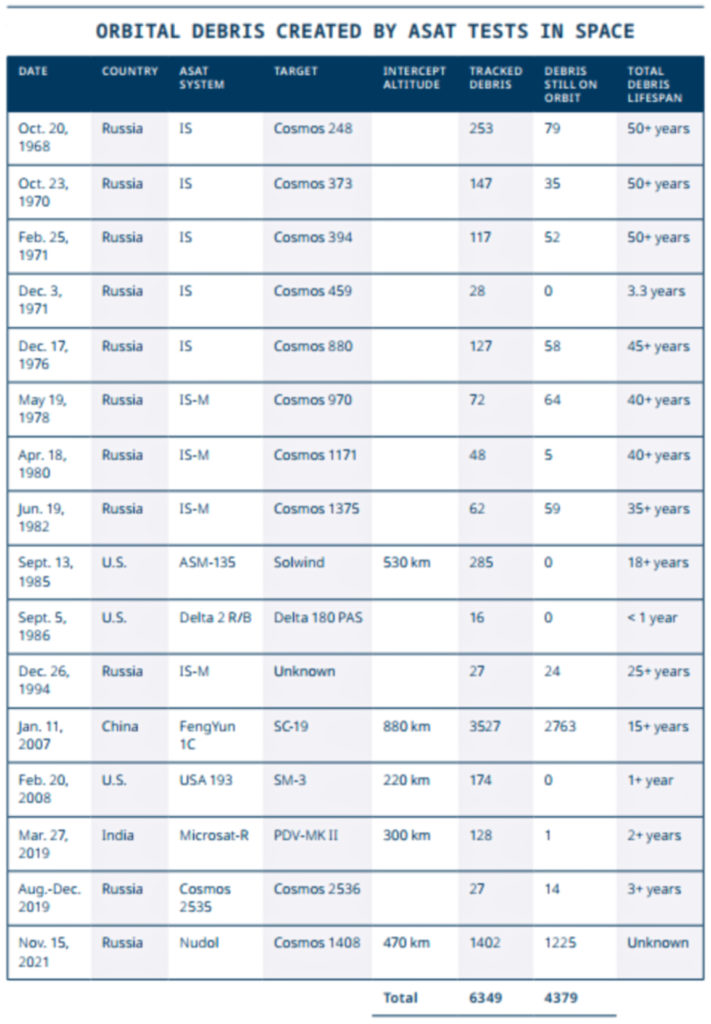On April 18, 2022, the U.S. Government announced that it was committing itself not to conduct destructive, direct-ascent anti-satellite (ASAT) missile tests.

This declaration solidifies what has been implicit U.S. policy since 2008 and reinforces recent efforts to promote responsible behavior in space. As an organization that has long called for such a measure, Secure World Foundation welcomes and applauds this action and its positive implications for the long-term sustainability of space activities.
The debris generated by destructive ASAT tests poses serious physical threats to other objects in orbit, and this risk persists for years, if not decades. The debris from a destructive ASAT test will spread out across a range of altitudes that cannot be fully predicted and will continue to orbit the Earth at high speeds,posing a collision risk to other satellites and crewed spacecraft. If a piece of debris collides with another object, the impact can easily damage or destroy that object, generating yet more debris that can pose an ever greater risk as the number of satellites and crewed spacecraft continues to rise, particularly in LEO. To date, there have been 16 destructive ASAT tests, resulting in more than 6,300 pieces of debris (please see the table below).
Today, there are more than 5,500 active satellites that provide critical services, including telecommunications, Earth science data, and national security applications. The U.S., as part of an international consortium, operates the International Space Station, maintaining a continued human presence in space for over two decades. China’s Tiangong space station will also have crew on-board, and in the near future, there are likely to be other public and private crewed space activities. Debris can pose a threat to all of these crewed spacecraft, as well as satellites, making the intentional destruction of objects in orbit even more irresponsible.
With this policy, the U.S. is demonstrating leadership at the international level. By adopting this policy unilaterally, the U.S. is signaling that it sees this behavior as being so irresponsible that it is unwilling to engage in it. As productive discussions in multilateral fora continue on norms and principles for responsible behavior in space, this new U.S. policy sends a clear message about U.S. commitment to ensuring the long-term sustainability of outer space.
The United States hopes to create a new international norm for responsible behavior in space. We hope other States will join the United States and declare policies not to conduct debris-causing ASAT tests in space. Moreover, we hope the international community will work collectively towards reinforcing these unilateral commitments with binding agreements and verification regimes. This would mark a significant step towards strengthening security and stability for all.


